Let's be honest, aluminum foil is a kitchen hero. It's versatile, affordable, and always there to help when you're in a pinch. But lately, whispers of its potential harm have been circulating, leaving many of us wondering: is aluminum foil really safe for cooking?
I’ve been using aluminum foil for years, and I'll admit, I'm a bit of a fan. From wrapping leftovers to grilling fish, it's my go-to for all sorts of kitchen tasks. But, the recent controversy has made me question my foil-loving ways.
So, today, we’re diving into the world of aluminum foil, exploring its history, benefits, and potential risks. We’ll uncover the truth behind those concerns and look at some sustainable alternatives. Get ready for a deep dive into the fascinating, and sometimes confusing, world of aluminum foil.
(Part 1) Aluminum: The Metal that Makes Our World Go Round
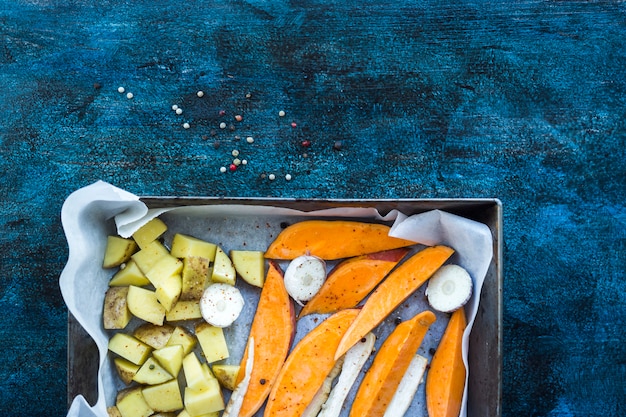
First things first, let’s talk about aluminum itself. It's not a new invention; it's a naturally occurring element that's been around for ages. It’s actually the third most abundant element in the Earth's crust, but we didn't really start harnessing its power until the 19th century.
The Good: A World of Versatility
Aluminum's popularity isn't just a fad. It's lightweight, durable, and a fantastic conductor of heat. Those properties make it perfect for everything from kitchen utensils to airplanes. Plus, it's relatively inexpensive to produce, which makes it accessible to everyone. That's why it's everywhere—in our cars, our smartphones, and even our food packaging.
The Bad: A Shadow of Concern
Here's where things get a bit tricky. While aluminum is essential in our everyday lives, it's also linked to some health concerns, particularly when it comes to excessive exposure. Some studies suggest that high levels of aluminum in the body may be associated with conditions like Alzheimer's disease, bone disorders, and even kidney problems.
It's important to emphasize that these studies focus on prolonged exposure to high levels of aluminum, typically found in industrial settings. For the average person, the amount of aluminum we encounter in daily life is significantly lower.
The Ugly: A Tale of Two Sides
Now, before we get carried away with worry, let's remember that aluminum is a natural element. We encounter it in the environment, in the food we eat, and in the water we drink. The amount we absorb from everyday use, including cooking with aluminum foil, is typically very small and unlikely to pose significant health risks.
The real concern lies with industrial exposure, where workers might inhale or ingest aluminum dust or fumes. These scenarios are far removed from the everyday use of aluminum foil in our kitchens.
(Part 2) Aluminum Foil in the Kitchen: A Double-Edged Sword?
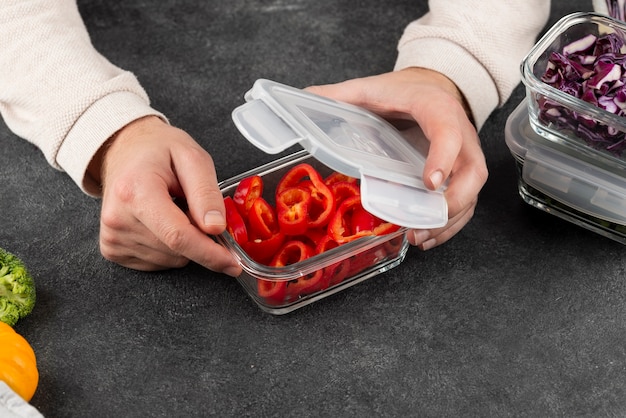
Now, let's get to the heart of the matter: aluminum foil and cooking. I've always loved the convenience and versatility of foil, but the recent concerns have made me rethink my usage.
The Case for Foil: Convenience and Versatility
Here’s why I’ve always been a fan of aluminum foil:
- Heat Conductor Extraordinaire: Foil is a brilliant conductor of heat. It cooks food evenly and quickly, making it a time-saver in the kitchen.
- Stick-Free Superhero: It creates a barrier that prevents food from sticking to your baking dish, saving you from a lot of scrubbing.
- Portion Control Powerhouse: It's fantastic for creating individual servings, ideal for meal prepping or packing lunches.
- budget-friendly Friend: It's surprisingly affordable, especially compared to other reusable options.
From roasting vegetables to grilling fish, I’ve found countless uses for aluminum foil. It's a true kitchen champion.
The Case Against Foil: Concerns and Controversies
Okay, we can’t ignore the concerns. Here are the main arguments against using aluminum foil for cooking:
- Leaching: Some people worry about aluminum leaching into food, especially when cooking acidic foods like tomatoes or citrus fruits. While this concern is valid, the amount of aluminum that leaches is generally minimal.
- Toxicity: As we discussed earlier, high levels of aluminum exposure can be a health risk, but the amount you'd ingest from occasional foil use is insignificant.
- Environmental Impact: Aluminum production and disposal have a significant environmental impact. The mining and refining processes require a lot of energy and release harmful pollutants.
It's a balancing act: convenience versus potential health and environmental concerns. The question is, how much risk are you willing to take?
(Part 3) Alternatives to Aluminum Foil: Sustainable Swaps for a Healthy Kitchen
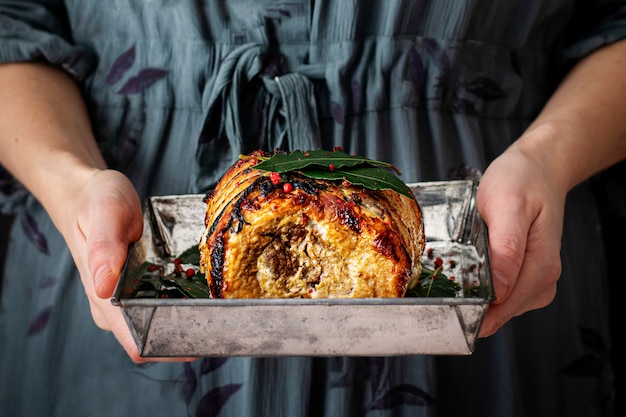
Now, let's talk alternatives. I’m a foil fan, but I'm not a stubborn fool. There are plenty of eco-friendly options out there.
Eco-Friendly Solutions for Every Occasion
Here are some alternatives that might just change your kitchen game:
- Parchment Paper: A fantastic choice for baking, roasting, and even wrapping food. It's non-stick and grease-proof, making it a great substitute for foil in many applications.
- silicone baking mats: Reusable, durable, and easy to clean. They're ideal for baking cookies, roasting vegetables, and even making pizza.
- Reusable Silicone Wraps: Perfect for covering leftovers or packing snacks. They're made of food-grade silicone, so no worries about chemicals leaching into your food.
- Glass or Ceramic Containers: For storing leftovers, these are a fantastic way to ditch plastic and aluminum. They're dishwasher-safe and can go in the oven.
- Reusable Food Wraps: Made from beeswax, cotton, or other natural materials. They're a great way to wrap sandwiches or cheese, and they're compostable.
These alternatives offer sustainable and healthy options for minimizing your reliance on aluminum foil, but it's important to remember they each have their own pros and cons. The key is finding what works best for you.
(Part 4) The Environmental Footprint of Aluminum Foil: A Look at Production and Disposal
Let's talk about the environmental impact of aluminum foil, a subject that often gets overlooked.
The Hidden Costs of Aluminum Production
Aluminum production is energy-intensive, with a significant environmental footprint. Mining bauxite ore, the raw material for aluminum, requires enormous amounts of energy and releases greenhouse gases. Then, there's the refining process, which further contributes to environmental pollution.
Recycling Aluminum: A Ray of Hope
The good news is that aluminum is highly recyclable. It can be melted down and reused virtually indefinitely, significantly reducing the environmental impact of aluminum production. So, if you do use aluminum foil, make sure to recycle it.
Making Sustainable Choices
Ultimately, it's about making conscious choices. If you're concerned about the environment, switching to alternatives like parchment paper or reusable silicone wraps can make a difference.
(Part 5) Aluminum Foil: Weighing the Risks and Rewards
So, what's the verdict? Is aluminum foil safe for cooking? The answer, as with many things in life, is "it depends".
Moderate Use, Responsible Disposal
If you use aluminum foil occasionally and dispose of it properly, the risks are minimal. However, if you're concerned about aluminum leaching into your food or the environmental impact, switching to alternatives is a wise choice.
Knowledge is Power: Making Informed Decisions
The key is to be informed. Do your research, read the labels, and make choices that align with your values. Remember, you're in control of your kitchen and your choices.
(Part 6) FAQs: Decoding Your Aluminum Foil Questions
Let's address some of the most common questions about aluminum foil:
1. Can I Reheat Food in Aluminum Foil?
It's best to avoid reheating food in aluminum foil. Reheating can increase the risk of aluminum leaching into your food. Microwave-safe containers or parchment paper are better alternatives.
2. Is Aluminum Foil Safe for Grilling?
Yes, aluminum foil is safe for grilling. It helps to prevent food from sticking to the grill grates and allows for even cooking. Just use a large enough piece to cover the food and avoid direct contact with the flames.
3. What About Using Aluminum Foil in the Oven?
It's safe to use aluminum foil in the oven, but be cautious when using it with foods high in sugar or acidic. These foods can react with the aluminum and cause discoloration. Always check your oven instructions before using foil.
4. Is it Safe to Store Leftovers in Aluminum Foil?
Short-term storage in aluminum foil is generally considered safe, but prolonged storage, especially for acidic foods, isn't recommended. Glass or ceramic containers are better for long-term storage.
5. Is it Safe to Wrap Food in Aluminum Foil for Travel?
Short-term use is fine, but for long trips, reusable containers or food wraps are a better choice. This will help to minimize aluminum leaching and keep your food fresher.
(Part 7) Aluminum Foil: A Kitchen Staple, But Not a Magic Bullet
Aluminum foil has been a kitchen staple for decades, and for good reason. It’s versatile, affordable, and can be a true lifesaver when you need it. However, it's important to use it responsibly and be aware of its potential risks.
Remember, there are alternatives to aluminum foil that might be a better choice for certain applications. The key is to make informed decisions based on your priorities and concerns.
(Part 8) Aluminum Foil: A Personal Perspective
Honestly, I’m a bit torn about aluminum foil. I appreciate its convenience and affordability, but I’m also aware of its potential health and environmental concerns. I’m trying to be more mindful of my choices and use alternatives whenever possible.
I’m also a big advocate for recycling, and I always make sure to wash and recycle my aluminum foil. Even if I can't completely eliminate my use of foil, I can at least minimize its impact on the environment.
Ultimately, it's about finding a balance. We can enjoy the benefits of aluminum foil while also being conscious of the potential risks. Knowledge is power, and by being informed and making responsible choices, we can use this versatile material without compromising our health or the environment.
Everyone is watching

How to Cook Frozen Lobster Tails Perfectly: A Step-by-Step Guide
RecipesLobster. Just the word conjures up images of lavish meals, special occasions, and a taste of luxury. But let's...

Pigs in a Blanket Cooking Time: How Long to Bake for Perfect Results
RecipesAh, pigs in a blanket. Just the name conjures up images of those delightful little parcels of crispy pastry en...

Pork Fillet Cooking Time: How Long to Cook It Perfectly
RecipesPork fillet, or tenderloin as it's sometimes called, is a real favourite in our house. It's so versatile, and...
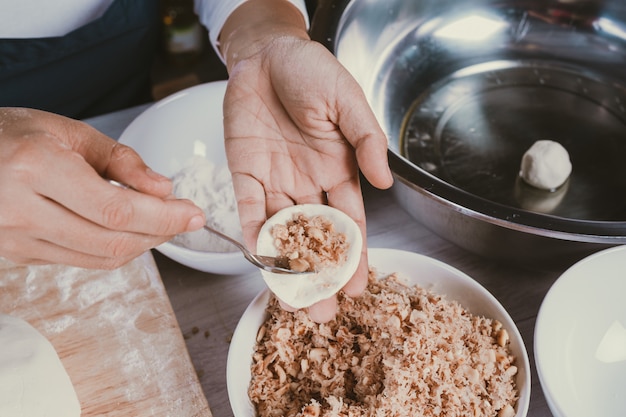
The Ultimate Guide to Tender, Juicy Pulled Pork
RecipesRight, let's talk pulled pork. It's one of those dishes that just screams "comfort food," doesn't it? I mean...
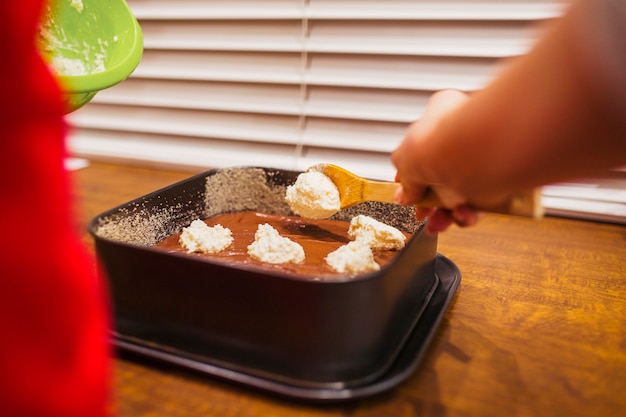
The Ultimate Guide to Cooking Delicious Frankfurters
RecipesLet's face it, we all love a good frankfurter. It's a classic, simple, and always satisfying. But let's be rea...
